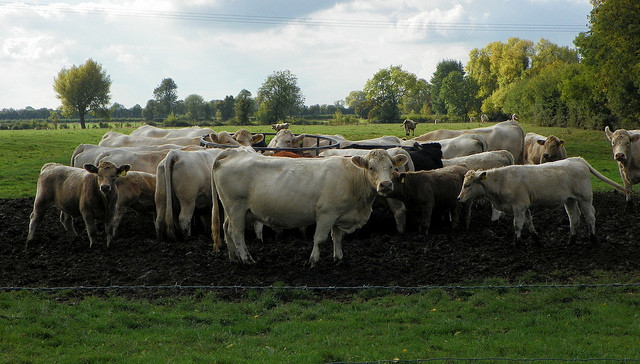The China-US trade war continues and the latest retaliatory move from Beijing threatens US cattle farmers as beef and other imported beef products receive a new steep tariff rate.
What was once good news for the US-based cattle industry immediately turned sour as the tit-for-tat trade conflict between Washington and Beijing rages on.
According to South China Morning Post, China has finally lifted the 14-year ban on American beef products this year. In 2003, the mad cow disease outbreak entered the country prompting the Chinese government to enforce the said embargo.
Despite these recent developments, the US agricultural sector still couldn't regain its foothold on the Chinese market since the said food product was included in the latest tariff imposed by the Xi Jinping government.
From the meager 12 percent tax, the rate ballooned to 37 percent in July.
In a video interview with Americans for Farmers and Families organization representative, Casey Guernsey, CNBC probed the likely increase of product prices that the new levy has caused.
According to Guernsey, it can cost US farmers a total of USD$138 million just to answer the latest Chinese duty on their products.
"We can't afford any increase in price," the spokesperson told the news outlet, adding that, these kinds of fluctuations can seriously threaten to break businesses regardless of its size.
Speaking of sizes, major meatpacking companies Tyson Foods, Cargill, JBS, and National Beef are now expressing their concerns about the impending negative effects brought by the trade spat.
In a report from Financial Times, it was found out that meat prices are now at its lowest in the US market. Corporations, like Tyson, are forced to make the move to offset the import situation in China as well as in Mexico.
"The combination of changing global trade policies here and abroad, and the uncertainty of any resolution, have created a challenging market environment of increased volatility, lower prices, and oversupply of protein," Tyson executive Tom Hayes told the Financial Times.
The Arkansas-based firm has reported earlier a 10 percent plus decline in shares for the Q2 of 2018.
In a statement made by US Meat Export Federation (USMEF), the return of access to Chinese food market could have brought the boon to the industry which, according to estimates, may play around USD$70 million to USD$430 million sans the Beijing tariff.
Beef wouldn't be the first food product that was put in the line of fire with the recent China tax policies. In a previous report, Beijing slapped a total of 50 percent levy on US pork export products.






